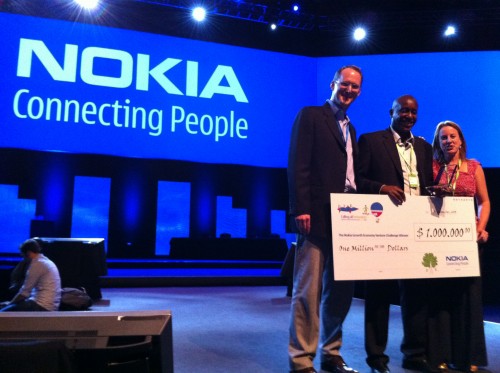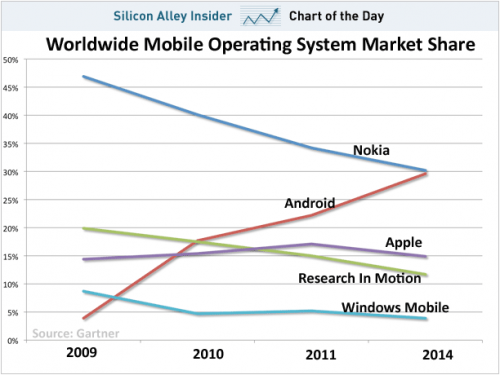Last month I had a surreal experience as I sat in the Global Messaging Congress in London, listening to mobile operators talk about mobile phone services from their perspective. It’s a crazy world really, one where the providers of the infrastructure also mercilessly try to hold onto and strangle every drop of profit from any service that sits on their network.
We’re all born in a small “company town“, where the mobile operators are the landlord and the bank, the grocery store and the mafia.
Interestingly enough, there is a completely different industry built on a much more open standard that separates infrastructure from content, transactions and use. That is, the internet. So, as we get closer to a world where there is less of a difference between the mobile and web worlds, then we see what happens when a strangling monopoly won’t give in to an open system. The open system bypasses it.
Some examples
Multimedia
It starts getting humorous when you start looking at value-added services like location, video or images. I sat there and listened to the mobile operators talk about how “MMS will never be the equivalent of SMS” – their cash cow. Of course, not with them running it.
However, 2 days later we see this headline from YouTube, “just since last Friday, when the iPhone 3GS came out, uploads increased by 400% a day.” What? Yes, that’s a staggering number and it’s due to the fact that no operator is running it, they’re just selling the underlying data structure.
Messaging
Twitter is a great service that allows personal networks to form and SMS messaging to take place on an ever extending one-to-many and many-to-many basis. It also works on the web, in fact, that’s one of it’s great strengths – the ability to treat any channel as native. When I look at Twitter, which is 3 years old now, I have to wonder why we still don’t see a Twitter-clone offered up by any of the operators working in the 192 countries that Twitter isn’t in. For goodness sake, the only major cost for Twitter is the “to-many” part of it, and that’s virtually free to an operator on their own network.
Location based services
When the mobile operators of the world wanted to control their location services, in the early 2000s they kept their prices too high for large and small consumer-facing organizations to buy their services. So, the web went around them… The entrepreneurs saw an advantage to going out and getting the number off of every mobile phone tower and doing basic triangulation from them and WiFi signals. Voila, the operator is bypassed and now makes no revenue off of a service that it could have provided for a lower fee.
Operators can’t build real consumer services
I’ve heard a a number of comments from within the industry like this:
“we’ve had the ability to do such-and-such (insert your favorite third-party service here) for a long time, there’s nothing special about YouTube/Twitter/Apple doing this.”
This is a true statement (most of the time), so why are there millions clamoring for these other services and not the ones that the operators offer?
The release of increasingly more user-friendly phones, coupled with services that bypass the traditional restrictions placed upon everyone by the operators, has created a way for the internet players to replicate or make irrelevant many of these same services offered by the operators. This will continue to be the pattern too, as the two industries collide.
What the operators should do is open up their basic infrastructure for third-parties to build consumer-facing applications on. Take a smaller cut on each application or service, and create a true ecosystem that supports more developers and companies trying to figure out ways to make more money off of your framework.





